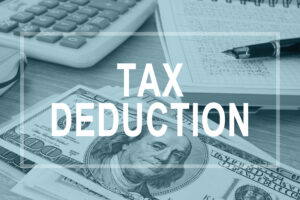FBAR Penalties Could Be Lessened Under New IRS Guidelines
According to the IRS, “if you have a financial interest in or signature authority over a foreign financial account, including a bank account, brokerage account, mutual fund, trust, or other type of foreign financial account, exceeding certain thresholds, the Bank Secrecy Act may require you to report the account yearly to the Department of Treasury by electronically filing a Financial Crimes Enforcement Network (FinCEN) 114, Report of Foreign Bank and Financial Accounts (FBAR).”
In other words, anyone who has money in a foreign bank account that exceeds $10,000 at any time during a given year will need to report that income to the IRS via an FBAR. However, recently, the IRS issued some new guidance regarding the penalties for those who don’t file an FBAR. According to reports, the IRS released a statement that noted: “For each year for which it is determined that there was a willful violation, examiners must fully develop and adequately document in the examination work papers their analysis regarding willfulness.”
For any case that involves willful violation for several years, it is up to the examiner to recommend the penalty length for each year the violation was determined to be willful. The IRS stated that typically the total penalty for the combined years under examination would not exceed ‘50 percent of the highest aggregate balance of all unreported foreign financial accounts during the years under examination.”
Meantime, an examiner can recommend more or less than the 50 percent threshold, but the total penalty cannot “exceed 100 percent of the highest aggregate balance.” There are obviously many possible scenarios and each case will be treated separately on its own merits and circumstances. The bottom line is you should still report your FBARs each year and report them on time. If you need help planning for and filing your FBAR then contact GROCO today at 1-877-CPA-2006, or by clicking here.
Commonly Overlooked Tax Deductions
Commonly Overlooked Tax Deductions As the tax filing deadline approaches, taxpayers are always looking for legitimate tax deductions they may have overlooked. For example, did you know you can deduct the money your business spent to purchase office supplies during the year? As long as these expenses were for items that are ordinary and necessary…
Tax Benefits of Owning a Home
Tax Benefits of Owning a Home Deducting mortgage interest In most cases, you can fully deduct your mortgage interest secured by your primary or secondary home. Beginning in 1987, mortgage interest to buy, build, or improve your home (acquisition debt) up to $1,000,000 or home equity loans up to $100,000 became tax deductible. Points (also known…
Popular Tax Credits for First-Time Homebuyers, Students and Those With Childcare
Popular Tax Credits for First-Time Homebuyers, Students and Those With Childcare By Victor Omelczenko 1/26/2009 Whether you’re looking to lower your tax bill or increase your refund, these IRS tips can help your bottom line. Tax credits can help pay the cost of raising a family, going to college, saving for retirement or getting day…
Profit From Your Children
Profit From Your Children Profit from your children? Making maximum use of your dependents can help slash your taxes significantly. “Dependents” generally mean your kids, but many of these gambits also work with low-income parents you might be assisting financially — even if they aren’t your dependents. Here are a few to consider. Hire your…


